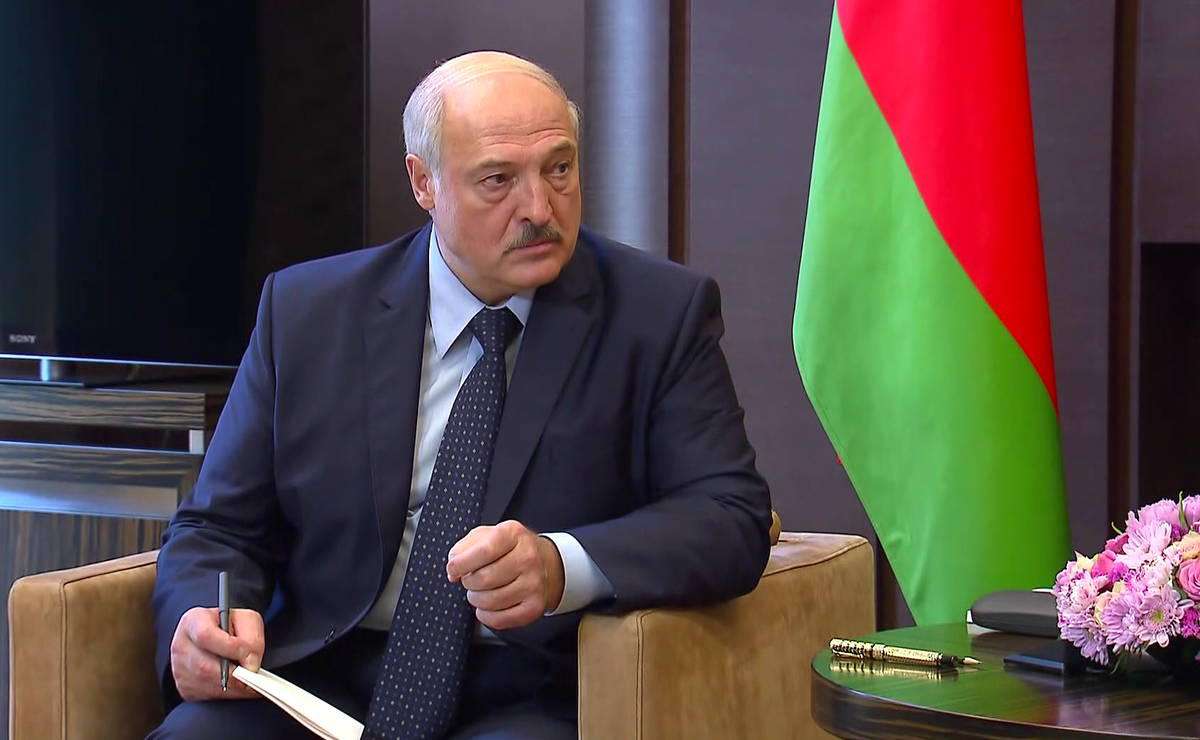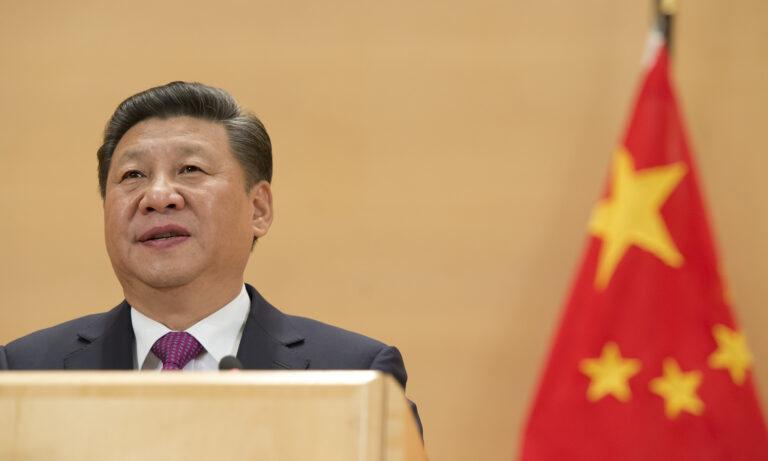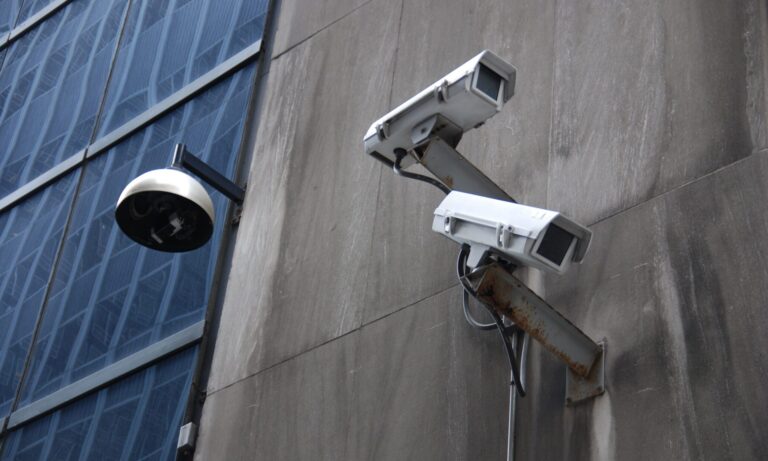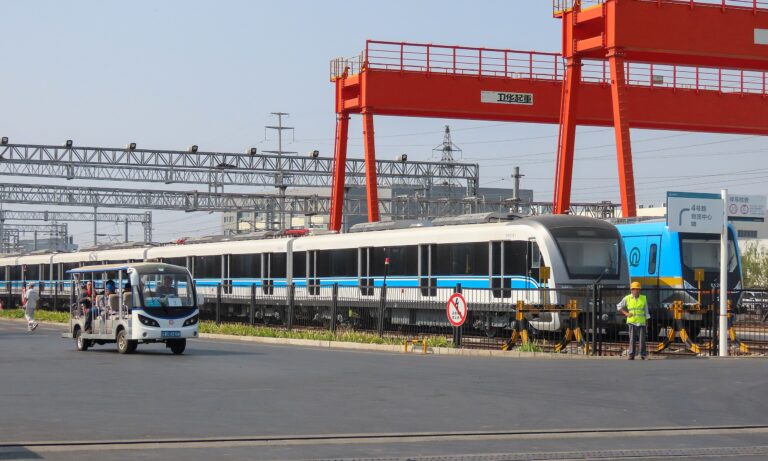
Increasing pressure from Western countries may leave the Lukashenko regime no choice but to embrace a two-pronged strategy. These prongs include deepening defense cooperation with Russia and bolstering economic ties with China.
While the migrant crisis along the Belarus-EU border has not yet ended, Western sanctions imposed on Minsk seem to have reached their peak. In the eyes of Washington and Brussels, the leader of Belarus, Alexander Lukashenko, engaged in “gangster style behavior” and launched a “hybrid attack” against institutions of liberal democracy. As a result, the collective West has greatly expanded its penalties on Minsk.
Minsk in Distress
The current crisis is ultimately the final straw, causing tensions between Minsk and Western countries to boil over after years of simmering animosity. The allegation of fraud in Belarusian presidential elections in August 2020 and subsequent violent crackdown on peaceful protesters have driven another significant wedge in Belarus’ relations with the West. At the time, Western countries refused to recognize the legitimacy of Lukashenko’s sixth term, condemned human rights abuses, and expressed their support for democratic principles in the country.
This is a scenario that has played out before.
Recent sanctions were along the same lines of previously applied Western pressure against Minsk in 2006 and 2010, when Lukashenko was also accused of making efforts to falsify presidential elections and perpetrated physical violence against protesters. In an effort to mend ties with the West, Lukashenko decided to release all political prisoners and hosted Ukraine-Russia peace talks in 2016. These political moves made the relations between Belarus and the West somewhat “warmer” for a couple of years.
However, the West’s recent measures against Lukashenko’s regime could actually backfire. The government of Belarus could bite the bullet, as it is essentially in survival mode at present. In December 2021, the Belarusian strongman threatened to retaliate against Western countries due to “unprecedented” economic sanctions. As the pressure from the US, UK, and others mounts, Belarus seems to have no choice but to rely on Russia and China to balance against the West. In order to broaden the bulwark against the Western pressure, the two powers seem more than happy to provide Minsk with a safety valve.
Under Russia’s Wing
Fundamentally, Russia is clearly behind Lukashenko’s rigid stance vis-à-vis the West. Several rounds of sanctions have confined Belarus’ financing options and squeezed its economy, and the Lukashenko government was forced to reduce the fiscal deficit while staying uncompromising by not rolling over external pressure.
Timely as it was, Moscow’s support has played an essential role in ensuring the stability of the Belarusian economy. Amid Western pressure, Russia has granted its ally Belarus preferential treatment via guarantees in business sectors. Minsk received new loans from Moscow and has sought yet even more from its economic sponsor.
Moscow has been determined to support Belarus despite Minsk’s swaying behavior in the past. In January 2020, Lukashenko accused Russia of pressuring Belarus to merge with Russia and later blamed Kremlin for lying about a “mercenary” group that Belarus had arrested. Yet, Putin still issued Lukashenko a $1.5 billion loan and sought to boost trade and defense cooperation in September of the same year.
From this perspective, Western pressure after the elections did not leave the Belarussian leader with many options, necessitating a turn toward Moscow again. In September 2021, Russia and Belarus agreed to pursue closer energy and economic integration in response to what they view as “unjustified Western sanctions” on both economies.
Russia also blamed Western nations for strangling Belarus while doubling down on its support for Minsk, and deployed two strategic bomber planes to “patrol Belarusian airspace.” In December 2021, Russian President Vladimir Putin and Lukashenko announced the plan to conduct joint military drills scheduled to be held in February or March 2022 in Belarus, showcasing enhanced ties in the face of Western sanctions.
Though the economic aspect of the Belarus-Russia relationship matters, the priority lies in the security sphere.
Russia has deepened its ties with Belarus due to the perceived “threats” posed by NATO bases next to its borders and US’ intensifying involvement in Europe. However, it was Russia’s military activities along the Ukrainian border that sparked escalating tensions between Moscow and the West.
Amid Moscow’s saber-rattling and NATO’s increasing troop deployments, military cooperation between Belarus and Russia has been strengthened. In September 2021, Lukashenko planned to arm his force with $1 billion of Russian weapons. The announcement came after Russia’s Western Military District and Belarus deployed troops to participate in the Joint Strategic Exercise, Zapad-2021. By doing so, Moscow and Minsk tried to highlight the alleged Western threat while adding “military capabilities and the willingness to employ it” along their borders, despite no realistic threat of NATO attacking Russia.
A European “Gateway” for Beijing?
In a similar vein, China has sought to enhance ties with Belarus, as both Beijing and Minsk find themselves under pressure from the West. China has failed in its “charm offensive” in many countries in Central and Eastern Europe, such as the Baltic countries, Bulgaria, Romania or Slovenia, with critics claiming that projects under Beijing’s Belt and Road Initiative are “not transparent and linked to weak governance, corruption and cost overruns.”
More importantly, China-EU relations have witnessed a dramatic fall, with “growing complaints and pessimism across Europe.” EU officials are alarmed by the Chinese increasingly authoritarian regime and Beijing’s anti-competitive commercial practices, echoed by EU leaders labeling China as a “systemic competitor” in its 2019 policy paper. Hence, Beijing may seek more linkages with Minsk as a supplementary choice for its outreach, especially in the context of Sino-Russian rapprochement.
China has considered Belarus as a “predictable and stable state”, with Minsk playing an indispensable role in Beijing’s overland trade route to Europe. Although China has maintained its “strategic silence” regarding the crisis along the Belarus-EU border, Beijing would highly uphold the relations with Minsk to preserve its economic interests as China is now Belarus’ second-largest trading partner. Last December, China’s Foreign Minister Wang Yi hailed the “ironclad friendship” between the two nations. On its part, Belarus vowed to increase exports to China and support Beijing in enhancing relations in Eastern Europe. China’s support for Belarus has been reaffirmed by Chinese Xi Jinping’s speech on January 10, when he underscored that China opposed “external forces interfering in Belarus’ internal affairs.”
In turn, as close friends linked by “iron brotherhood”, Belarus’ “strongman” government would consider bolstering the relationship with China, particularly in economic and military aspects. In August 2021, Global Times, the mouthpiece of the Chinese Communist Party, called for joint actions from China, Russia, and Belarus to punish Lithuania as the Baltic country allowed Taiwan to open an office under the name “The Taiwanese Representative Office in Lithuania”, not “Taipei.”
Prospects for Belarus-China economic relations seem to be bright, with projects in the Great Stone industrial park and the Belgee automobile factory joint-venture, as well as upgraded transport and logistics infrastructure cooperation. However, Great Stone’s development has been limited as no breakthrough has been achieved in attaining the expected number of resident enterprises and the levels of production and investment that both countries had planned. Meanwhile, Belarus could further enhance military-technical cooperation with China, with two defense ministries signing a memorandum of cooperation in November 2021 and lauding the achievement of “positive dynamics” in military technology cooperation a month later.
In the end, Minsk is likely to continue to opt for stable and friendly relations with Russia as a counterbalance to Western pressure while seeking closer ties with China to diversify its economic relations. According to Chatham House’s survey in 2021, Russia and China ranked first and second among countries favored by Belarusians, with 71 and 97 percent responding positively respectively.
Still, the extent of cooperation likely depends on the degree of trust among the three countries and how far the West could go to deter the trilateral alliance. Finding common challenges and possible areas of cooperation, such as pushing against pressures from the West and forging energy collaboration, could help maintain the trust between the three countries.
Written by
Huynh Tam Sang
huynhtamsang2Huynh Tam Sang is a Research Fellow at the Taiwan NextGen Foundation and a Lecturer in the Faculty of International Relations at the University of Social Sciences and Humanities, Vietnam National University-Ho Chi Minh City. He is also a non-resident WSD-Handa Fellow at Pacific Forum.
Pham Do An
phamdo_anPham Do An is a research assistant in Ho Chi Minh City University of Social Sciences and Humanities, Vietnam National University-Ho Chi Minh City. His research interests include Sino-U.S. strategic competition, East Asian security, and Vietnam’s foreign policy.


